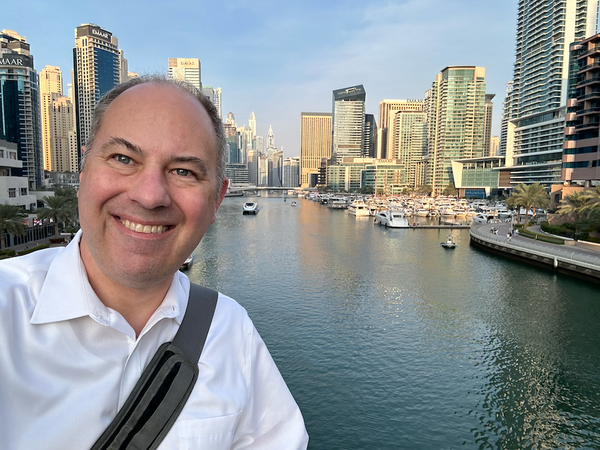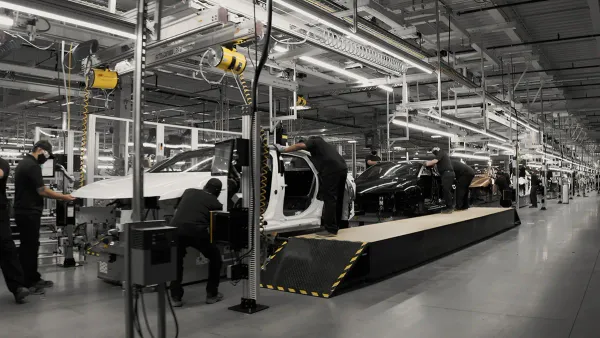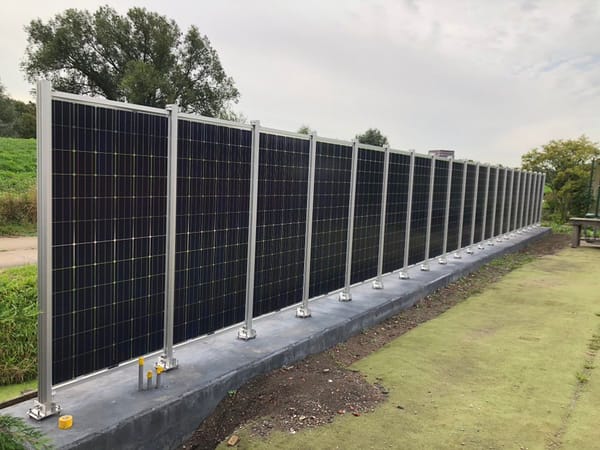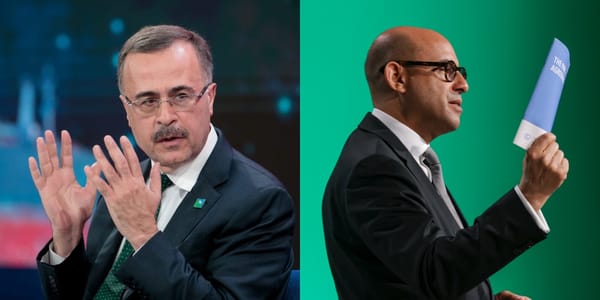Report from Dubai: OPEC weighs in
Good evening from Dubai,
There’s a notable increase in tension at COP28, as hope for big changes are starting to give way to political realism. For instance, OPEC has weighed in on the negotiations (more in the Global Stocktake section) – and it was not in favor of change. Still, the science is clear: If there’s no major economic change in how the world consumes fossil fuels, the planet will be irreparably harmed. So, how much economic change are ministers willing to swallow? We’ll find out this week.
Let’s get into the details.
-Mike

What Happened Today
Nominally COP28 is supposed to end in three days, on December 12. But COPs rarely end on schedule. Last year went a day over, and eight of the last ten meetings have gone at least one day over. In Dubai, observers are now making side bets on when the meeting will really end. Battle lines are being drawn over the proposed fossil fuel phase out, spending on Global Goals for Adaptation, and aspects of proposed carbon credit trading rules.
The meetings are increasingly difficult for reporters to follow, as much of the discussion moves into closed meetings and bilateral discussions. Badges reflect a strict hierarchy: Ministers > Party (negotiators) > Party Overflow > Observers > Press.
To get around this, some observer groups obtain “Party Overflow” badges from developing countries, as do some climate advocacy groups that publish daily reports on negotiations. As a result, the quality of news and information weakens significantly as rumor and unconfirmable reports become the currency. For instance, one advocacy organization, Carbon Brief, runs a daily report on COP, and one of the items yesterday asserted that Russia has vetoed Azerbaijan’s bid to host COP29. While Reuters and other traditional news outlets report the Azeri hosting as almost a done deal.
Which one is true? Hard to know! Discussions are fast and fluid here, as ministers from various countries press one another, with their entire political and economic power behind them. Vast fortunes and the health of entire nations are at stake as negotiators debate whether to ban coal, gasoline subsidies, and/or fossil fuels entirely.
As exciting as the phase out possibility may be, it seems unlikely though that a solid end date on fossil fuels could come out of this meeting. It would mean reorienting entire multi-trillion dollar economies, developing whole new supply chains in short order, and disrupting social order across the globe. Imagine angering all those Kentucky “roll coal” guys, the French gilets jaunes protestors, and restarting Middle East’s color revolutions all at once. As jazzed as climate advocates seem to be about cutting emissions by 43% by 2030, the leaders negotiating here in Dubai – the ones busy keeping governments afloat – believe they are more aware of social dynamics at home than anyone else.
So here it comes. Countries like Samoa, which is in danger of being erased by sea level rise (BTW: One very depressing meeting here was to discuss the future UN status of countries that lose all their dry land due to climate change), are calling not only for a fossil fuel end date, but complete divestment of fossil fuel projects. On the other hand, a Bolivian leader reportedly gave a fiery speech against banning fossil fuels, saying that the world will not hold them back from developing their economy.
The halls are now full of rumors of intractable arguments – but the state of those arguments are hard to reliably confirm because negotiations have moved behind closed doors and negotiators don’t speak on the record.
Two Big Issues
Like a Beyonce album drop (OK, not really), new negotiating texts are released in the early morning hours. Today, we learned about new proposed texts on a fossil fuel phase out and carbon credit trading. Both have the potential to radically alter the world economy if enacted. Let met talk through the carbon credit stuff first.
Carbon Credits and Forests
As I touched on yesterday, the big fight over the carbon credit text is whether or not forests can be counted as carbon credits. The Rain Forest Nation coalition (backed by the United States) want to portion out chunks of forest, then sell their preservation as carbon credits. The EU and others oppose that idea, arguing that if carbon credits are going to work, they have to represent genuine reductions, such as through efficiency methods, or Carbon Capture and Sequestration (CCS).
The argument is over rules for Paragraph 6.4, a portion of the Paris Agreement that is supposed to govern private sector international carbon credit trading. There is already regulated carbon trading within national borders, like the California or Japan trading systems, but international trading is all voluntary, with no government regulation, which has led to a number of scandals revealing fraudulent credits.
Observers I’ve spoken to that follow the process say the two sides on the issue are far apart. The EU wants credit trading to result from an increase of captured carbon. Rain Forest Nations see credit trading as a way to pay for the preservation of their forests, compensating them for not economically developing them, compensation they believe they are due from rich nations.
There was an attempt to pass 6.4 rules last year, and unless they are approved this year, climate advocates say, there’s a danger they’ll never pass at all.
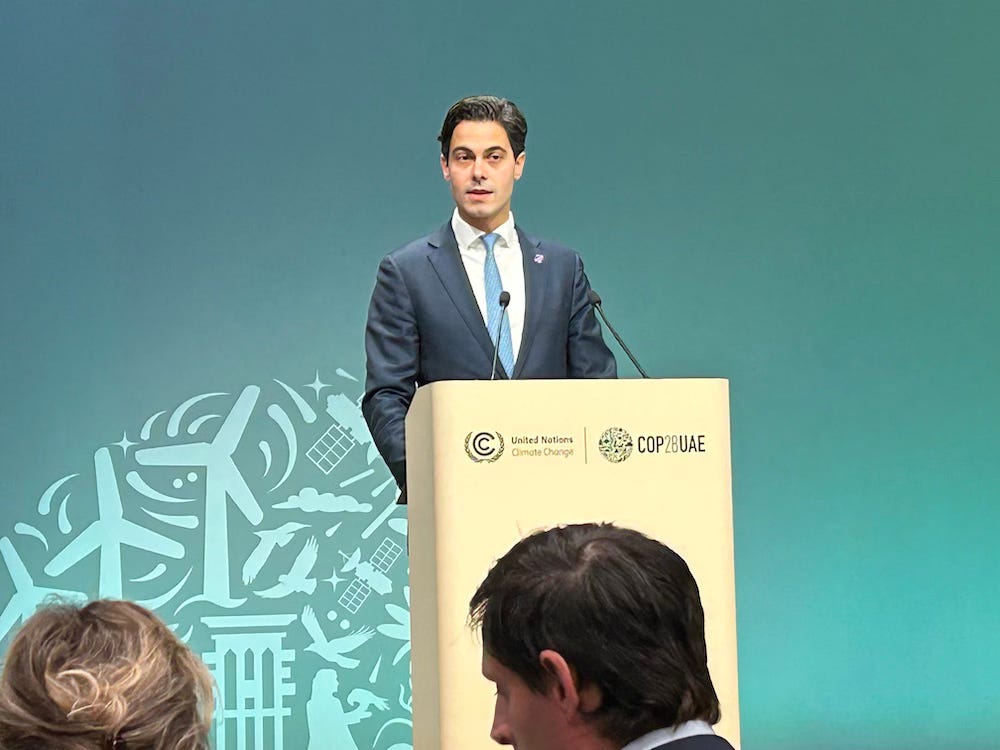
Fossil Fuel Phase Out
This argument is part of a much larger text, the Global Stocktake statement, which has a number of unresolved conflicts (such as phasing out coal, gasoline subsidies, and more), but the problem occupying everyone’s attention – and garnering the most media attention – is over setting a path for a fossil fuel phase out. Leaders of all stripes have been beating the drums for some sort of phase out language – but the devil is in the details, so the four options under consideration are worth looking at.
Option 1: A phase out of fossil fuels in line with best available science;
Option 2: Phasing out of fossil fuels in line with best available science, the IPCC’s 1.5 pathways and the principles and provisions of the Paris Agreement;
Option 3: A phase-out of unabated fossil fuels recognizing the need for a peak in their consumption in this decade and underlining the importance for the energy sector to be predominantly free of fossil fuels well ahead of 2050;
Option 4: Phasing out unabated fossil fuels and to rapidly reducing their use so as to achieve net-zero in energy systems by or around mid-century;
Option 4: [sic] no text
You’ll notice that none of the options provide specific milestones, which has upset climate activists to no end.
“What it lacks entirely are three elements: The first, is actual 2030 explicit deadlines. The second, is any type of differentiation for the U.S. and others to take the beat first. The third, is forcing rich countries to help with finance,” said Jean Su from the Center for Biological Diversity today.
The “best available science” says there needs to be no more fossil fuel projects started and the world needs to reduce its fossil fuel use by 43% by 2030. Putting aside the political desire to do this, as well as the economic impact it would have on petrostate economies, there is a serious question about whether or not the world could economically make this kind of shift within seven years. (Even the term “best available science” is in dispute, since India claims the UN science has inequity in modeling.)
The 2050 date is also significant, in that it’s largely agreed that the world needs to be net zero by 2050 – but that date also includes efforts to capture and reduce carbon levels. Petrostates have talked about eliminating “unabated” fossil fuels by 2050, meaning running enough carbon capture projects to compensate for all fossil fuel use, but Option 3 goes a step further, removing the idea of abatement. Option 4 is essentially the petrostate argument, as well as what the U.S. was talking up pre-COP.
Word among observers is that Saudi Arabia has been telling everyone that they oppose any language calling for a phase out at all – so even Option 4 is unworkable for them. Some developing countries have aligned with them, arguing that clean energy is just one more unreasonably expensive thing they need to do, whereas fossil fuels are the cheapest way to building their economies.
Also, yesterday the OPEC Secretary General Haitham Al Ghais released a letter yesterday urging members to reject any deal that is source-specific (such as “fossil fuels”) rather than focused on emissions. While OPEC countries could certainly ignore Al Ghais’ advice, the letter has put a chill on COP28, especially since UNFCCC members never approved a process for voting on issues, so all decisions must be unanimous. That means any one member has full veto power.
An interesting dynamic of the conference is that the COP28 President Sultan Al Jaber, who is also the CEO of the Emirati national oil company, is under pressure to deliver the deepest impact possible. Despite his country’s reliance on oil revenues, the UAE is clearly attempting to position itself as an international business center where deals get done. This is perhaps one of the biggest deals imaginable.
“We need a collective decision,” Al Jaber said in a press conference yesterday. “I’ve said that a phase down of fossil fuel is inevitable, and a decline is going to happen for sure at some time.”
While a cynical view would be that nothing will happen at COP28, a realist’s view is that there’s many unique pressures that could add up to a big change.

What I did today
I spent the day chasing down observers as I tried to understand what’s happening behind closed doors. There’s groups of chairs spread all over the main conference building, and folks sit around, waiting for their next meeting or waiting for someone to show up. It’s the perfect place to meet people, drink coffee, and gossip about what negotiators are up to. In fact, that’s a large portion of COP28. On occasion you’ll stumble into a negotiator, and depending on their irascibility and level of exhaustion, they might spill details or just clam up.
Tonight I’ll visit with a friend from graduate school that lives in Dubai! That should be much more fun.


